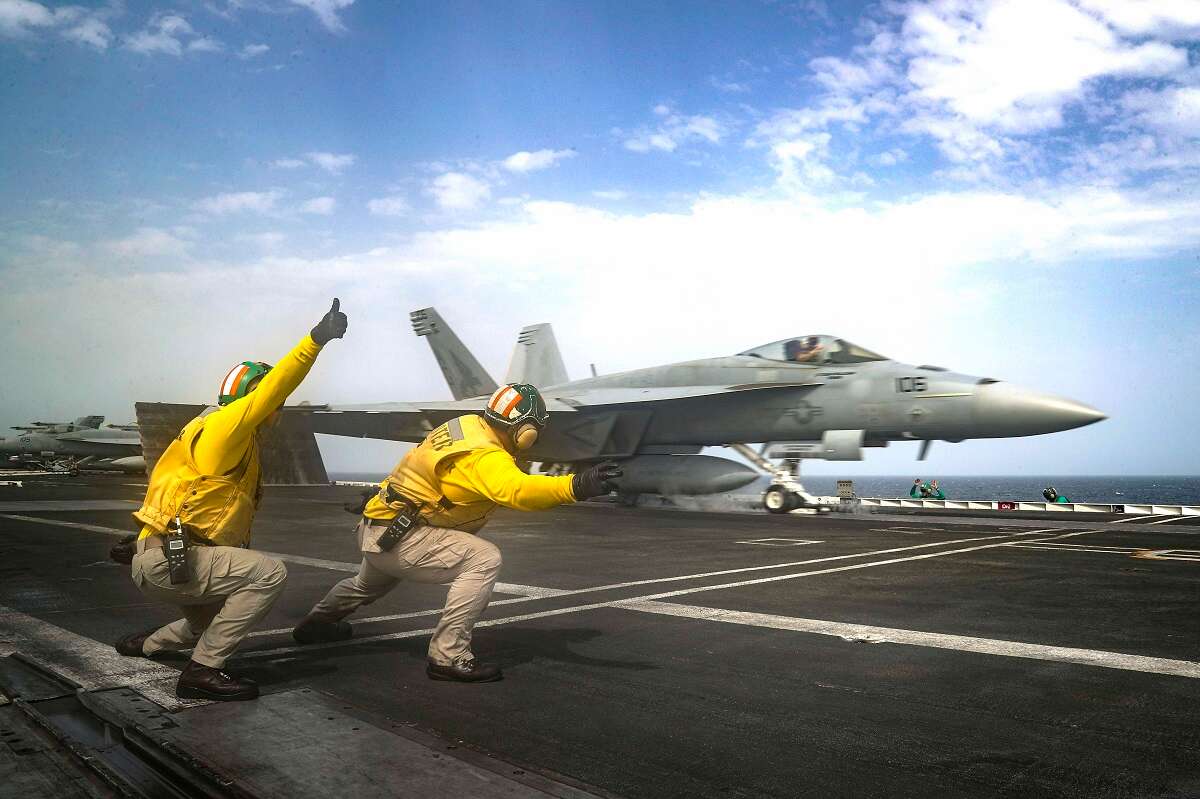As Iran threatens retaliation for Ismail Haniyeh's assassination in Tehran, and Hezbollah's vows for vengeance for the killing of their top military commander Fouad Shukr, the United States is bolstering its support for Israel. Washington is deploying a substantial fleet of warships, fighter jets, and defense systems to the region. Israel Hayom has learned that the Biden administration has lifted its restrictions on supplying Israel with the MK-83 half-ton (1000lb) bombs. That decision was made even before the current escalation. These munitions had previously been withheld for months, even prior to the outbreak of the current conflict.
The fate of the heavier MK-84 bombs, weighing one ton each, remains uncertain, with no clear indication of whether the US will agree to their transfer to Israel.
These half-ton bombs, previously utilized by the Israel Defense Forces (IDF) for numerous operations in the Middle East during periods of relative calm, will join approximately 1,700 MK-82 bombs weighing 551 pounds each. The latter had been delayed by the Biden administration after being loaded onto an Israeli-bound ship. They were removed on Biden's direct orders due to concerns over Israel's planned operation in Rafah.
Reports from late June indicated that the Biden administration had agreed to lift the delay on transferring the bombs. This decision came after US concerns about the operation proved unfounded, as Israel successfully evacuated over a million Palestinians from Rafah without causing a humanitarian crisis or significant civilian casualties.

However, the second half of the shipment, comprising about 1,800 heavier MK-84 bombs weighing one ton each, remains held up by the administration. Prior to Defense Minister Yoav Gallant's trip to Washington, Israel had the impression that the US would lift restrictions on sending these heavy bombs if Israel committed to not using them in specific areas of Gaza.
Yet, according to senior defense officials, a video released by Prime Minister Benjamin Netanyahu in English, accusing the US administration of delaying arms shipments to Israel, greatly angered Washington and led to the continuation of the restrictions.
Air-to-air missiles included in transfers
Israeli defense officials believe that the delay in shipping heavy bombs is now purely for appearances, given that American concerns about Israeli operations in Rafah have been allayed. They noted that one of Netanyahu's goals during his recent US visit was to persuade President Biden to release the shipment of heavy bombs. While the delivery of half-ton (MK-83) bombs is crucial for the Israeli Air Force, the heavier MK-84 bombs are deemed essential for potential conflicts in the northern arena.
Israeli Air Force officials emphasize that throughout the war, they have maintained ammunition stockpiles above critical levels required for readiness in the northern arena. Nevertheless, following the Biden administration's delay of 3,500 one-ton and 551-pound munitions shipments for several months, and the reduced transfer of other essential operational munitions, ammunition management has become significantly more stringent.
Israel Hayom has also learned that the US has recently eased restrictions on additional munitions. Weapons from US military warehouses in Israel have been transferred to Israeli forces, including air-to-air missiles. These are crucial for intercepting unmanned aerial vehicles that have frequently attempted to infiltrate Israeli airspace since October 7, including one that exploded in Tel Aviv.
Furthermore, the US plans to bolster its munitions stockpiles in Israel. This strategic move would enable rapid transfers if necessary, eliminating the need for time-consuming transportation from the US mainland.




